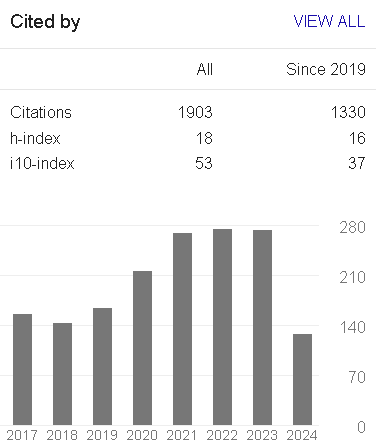Advance Driver Assistance System for Indian Traffic Scenario: Literature Review
Keywords:
ACC, PCS, LKA, Region of Interest (RoI), Edge Detection, HV, HGAbstract
Intelligent Transportation System (ITS) is the propitious solution for sustainable and stable transportation in India. There are many genre issues in the execution of Intelligent Transportation System (ITS) for Indian chaotic traffic scenario, e.g. heavy transportation, tracking the drivable road and tracing cars, poor lane marking, road conditions etc. The Advanced Driver Assistance System (ADAS) is one of the promising applications which can be used to decrease the collisions and vehicle congestion. In the present scenario, ADAS system in India is only used in a fully loaded vehicle which is expensive and requires high maintenance. Using simple algorithms and high-quality low-cost cameras and sensors the ADAS can be implemented. The proposed paper provides a brief summary of available ADAS techniques including developed systems and research prototype.
References
http://meity.gov.in/content/intelligent-transportation-system-its
Rijurekha Sen, Bhaskaran Raman, “Intelligent Transport Systems for Indian Cities”, Department of Computer Science and Engineering
Indian Institute of Technology, Bombay, 2011
Advanced Driver Assistance System, RavindraB.S and Vijaykumar K.V, Mistral Solutions ptv, lmt. India
Chunzhao Guo, Junichi Meguro, Yoshiko Kojima, and Takashi Naito, “CADAS: a Multimodal Advanced Driver Assistance System for Normal Urban Streets based on Road Context Understanding,” IEEE Intelligent Vehicles Symposium (IV), 2Gold Coast, Australia June 23-26, 2013
Paul George, Indira Thouvenin, Vincent Fr´emont and V´eronique Cherfaoui, “DAARIA: Driver Assistance by Augmented Reality for Intelligent Automobile”, Intelligent Vehicles Symposium Alcalá de Henares, Spain, June 3-7, 2012
Yen-Lin Chen, Hsin-Han Chiang, Chuan-Yen Chiang, Chuan-Ming Liu, Shyan-Ming Yuan and Jenq-Haur Wang, “ A Vision-Based Driver Nighttime Assistance and Surveillance System Based on Intelligent Image Sensing Techniques and a Heterogamous DualCore Embedded System Architecture”,,www.mdpi.com/journal/sensors, Sensors 2012
Zehang Sun, George Bebis2 and Ronald Miller3, On-Road Vehicle Detection Using Optical Sensors: A Review, 1eTreppid Technologies, LLC, Reno, NV2Computer Vision Laboratory, University of Nevada, Reno, NV 3Vehicle Design R & A Department, Ford Motor Company, Dearborn, MI.
Andreas Festag, Alban Hessler, Roberto Baldessari, Long Le, Wenhui Zhang, Dirk Westhoff, “VEHICLE-TO-VEHICLE AND ROAD-SIDE SENSOR COMMUNICATION FORENHANCED ROAD SAFETY”, NEC Laboratories Europe, Network Research DivisionKurf¨ursten-Anlage 36, D-69115 Heidelberg
Christos Katrakazas, Mohammed Quddus, Wen-Hua Chen, Lipika Deka, “Real-time motion planning methods for autonomous on-road
driving: State-of-the-art and future research directions”, Transportation Research Part C 60 (2015) 416–442
Downloads
Published
How to Cite
Issue
Section
License
Copyright (c) 2017 COMPUSOFT: An International Journal of Advanced Computer Technology

This work is licensed under a Creative Commons Attribution 4.0 International License.
©2023. COMPUSOFT: AN INTERNATIONAL OF ADVANCED COMPUTER TECHNOLOGY by COMPUSOFT PUBLICATION is licensed under a Creative Commons Attribution 4.0 International License. Based on a work at COMPUSOFT: AN INTERNATIONAL OF ADVANCED COMPUTER TECHNOLOGY. Permissions beyond the scope of this license may be available at Creative Commons Attribution 4.0 International Public License.


